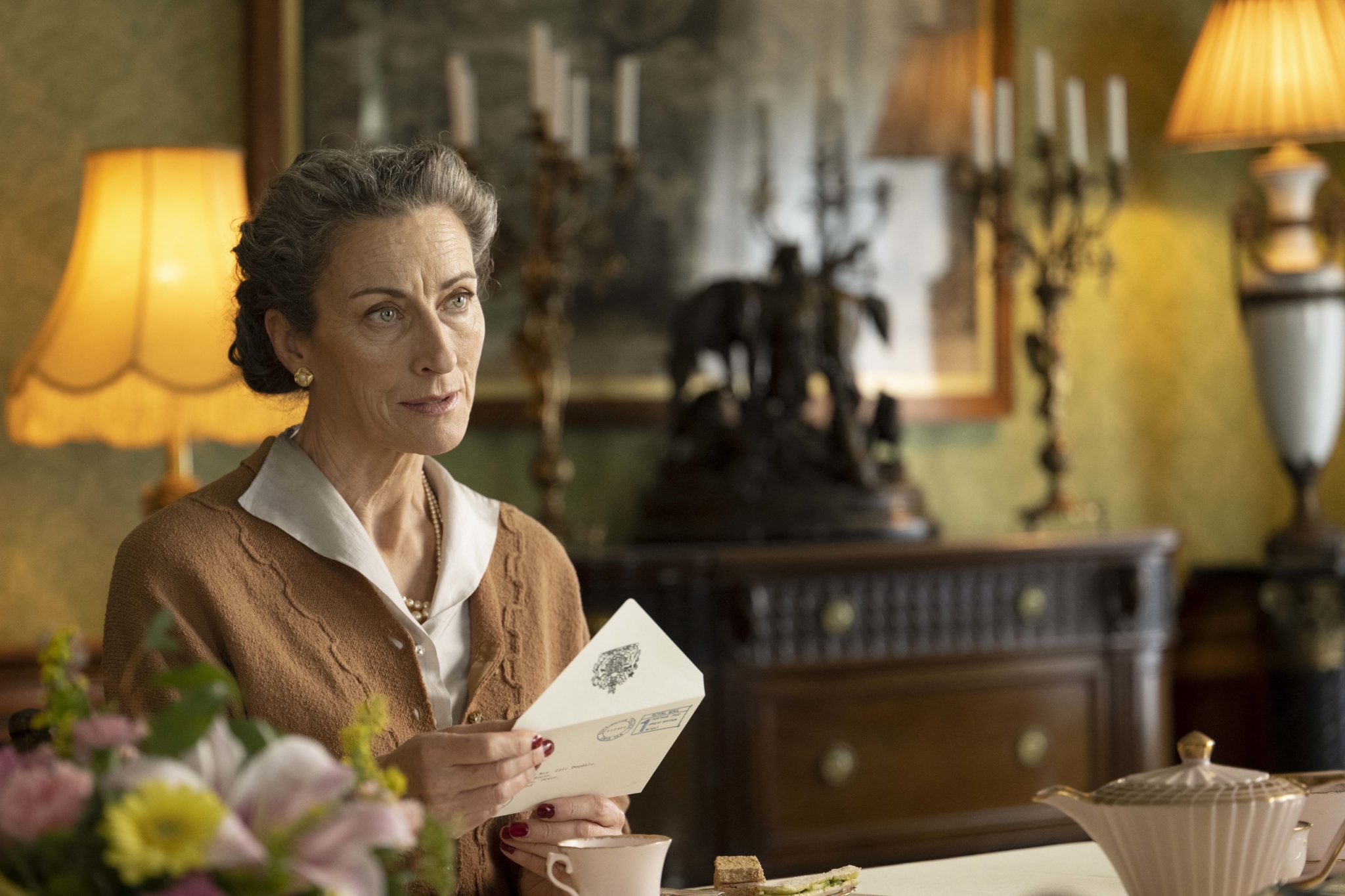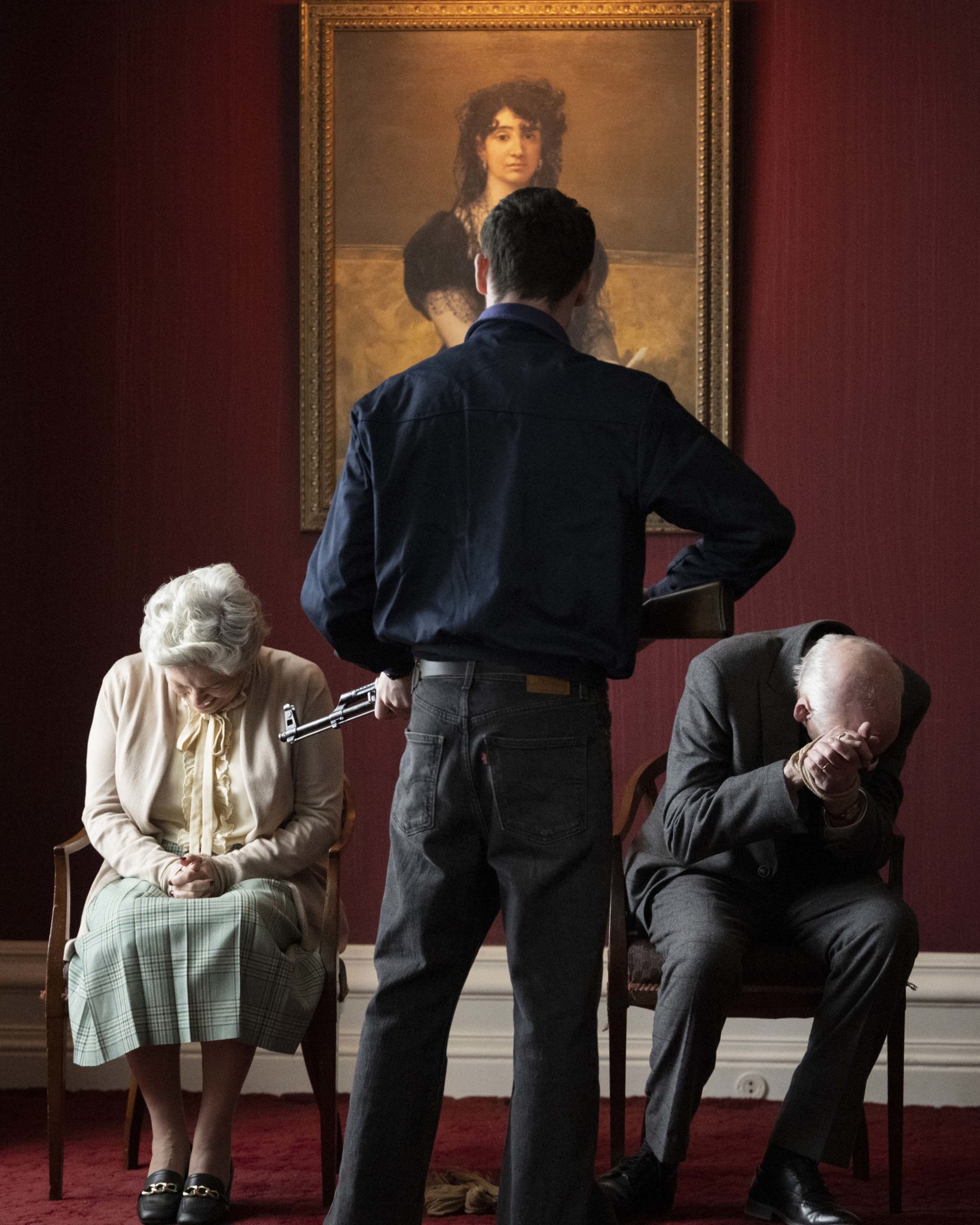- Film And TV
- 27 Mar 24
Joe Lawlor and Christine Molloy on Baltimore: "We wanted to structure the film like a painting"

Joe Lawlor and Christine Molloy discus Baltimore, their fascinating new film about English heiress-turned IRA volunteer Rose Dugdale.
Married writing-directing duo Joe Lawlor and Christine Molloy have always been interested in place and identity: how our roots shape us, and how leaving – or being left – can alter our sense of self. It’s a theme they’ve explored in features like Rose Plays Julie and Mister John, and in The Future Tense, they even turned their camera on themselves.
In the process, they created an intimate portrait of themselves as Irish artists who moved to London, and are witnessing the rising xenophobia of Brexit-era Britain. Simultaneously, they are also aware of increasing division in Ireland. In the film, they referred to a planned project about the recently deceased Rose Dugdale, a privileged English heiress whose early interest in feminism, Marxism and political activism separated her from her peers, before she self-radicalised and became an IRA volunteer.
Two years after The Future Tense, and Molloy and Lawlor’s film about Dugdale has come to fruition. In Baltimore, Imogen Poots plays Dugdale, and the non-linear story gives us insight into Dugdale’s college-era interest in injustice; a tense re-enactment of the 1974 raid of Russborough House, where Dugdale and three other IRA members stole 19 paintings; and Dugdale’s post-raid hideout in Glandore, Co. Cork, where – while pregnant – she attempted to negotiate an exchange of the paintings for the release of convicted IRA volunteers Dolores and Marian Price.
This intriguing three-part structure was no accident.

“Paintings loom large in the story, and there is obviously a long history of the triptych in art,” explains Lawlor. “So we wanted to structure the film like a painting. You get this kind of panel on the left, the centre, and on the right. Because of that, you get a lot of cross connection. You can have a tender moment of Rose talking to her child, and the very next second, it crashes into her speaking in a French accent, while pointing a gun at someone’s face.
“Whereas if you used a conventional narrative of cause and effect and continuity, you would never get that kind of sharp juxtaposition. It’s abrasive, and for us, there was a certain exhilaration within that structure, showing how complex this person was.”
Lawlor and Molloy chose not to contact the now 82-year-old, wanting to avoid the pressure of making a conventional biopic, and instead focus on a story about identity. But their extensive research gave them a real sense of Dugdale’s voice, including her disgust with sexist and classist debutant balls, and a court case where Dugdale represented herself and cross-examined her own father, telling her millionaire parent, “I love you, but hate everything you stand for.”
“There is a desire on our behalf to try and understand the process of radicalisation,” says Lawlor. “There might be a sense that Bloody Sunday was a real pivotal moment for her in terms of militancy – but the radicalisation had already started long before that. By the time she went to her debutante ball, she called it a ‘pornographic affair’ – a kind of meat market for young women to find an eligible bachelor. She’s only 17 or 18, and already she’s speaking unlike any of her contemporaries. Why?
“These are the questions that you’re asking. What is it about you? It’s interesting to ask. And the other thing is that as that slowly changes, it becomes somehow more militant, more violent. And why is that? Is that frustration? Do people, when they’re increasingly frustrated by injustice, become more extreme in their reaction?”

Baltimore neither glorifies nor demonises Dugdale, with Molloy and Lawlor allowing audiences to come to their own conclusions about her. The writer-directors comment wryly that complaints about “humanising” difficult characters always confuse them – how can you not humanise a human being, even in (or especially in) their flaws, complexity, and even criminality? But at a London screening, some audience members cornered Molloy and Lawlor to complain.
“Two women did this pincer movement towards me,” reveals Molloy. “They assumed any film about Rose Dugdale was lionising her. Therefore, it’s doing a disservice to all the people in Northern Ireland who died from The Troubles, and how dare we, this is a disgusting film. It was like they hadn’t even watched the film.”
Molloy and Lawlor hope that people leave Baltimore thinking not only about Rose Dugdale, but the idea of radicalisation, which can move in all directions. Having lived in the UK since the ’80s, Molloy and Lawlor are proud of how Ireland carved out a new identity away from its conservative, Church-ruled past. But they’re also aware of how capitalism, neoliberalism and rising right-wing rhetoric can all serve to cause disconnection, alienation and division.
“It’s interesting to watch politically the sands shifts and change,” says Lawlor. “Overall, that’s been a really positive thing in Ireland, so I’m excited by our progression and what people are thinking and where they’re going – but watch out. Be careful.”
• Baltimore is in cinemas now.
RELATED

- Film And TV
- 17 Dec 25
WATCH: Teaser trailer for Steven Spielberg's Disclosure Day

- Film And TV
- 17 Dec 25
Andrew Scott and Olivia Colman to star in Elsinore
RELATED

- Film And TV
- 16 Dec 25
FILM OF THE WEEK: Eleanor the Great

- Film And TV
- 16 Dec 25
Danielle Galligan selected for European Shooting Stars 2026

- Film And TV
- 16 Dec 25
Tributes pour in after homicide death of actor-director Rob Reiner and wife Michele

- Film And TV
- 16 Dec 25
WATCH: Netflix releases Stranger Things season 5 part 2 trailer

- Film And TV
- 15 Dec 25
Legendary actor-director Rob Reiner and wife Michele found dead in apparent homicide

- Film And TV
- 12 Dec 25


